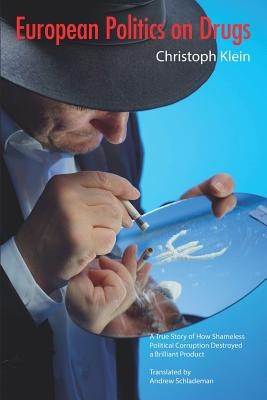
- Išsiųsime per 10–14 d.d.
- Leidėjas: INDEPENDENTLY PUBLISHED
- ISBN-10: 1730917003
- ISBN-13: 9781730917004
- Formatas: 15.2 x 22.9 x 1.4 cm, minkšti viršeliai
- Kalba: Anglų
- Extra -15 % nuolaida šiai knygai su kodu: ENG15
European Politics on Drugs | knygos.lt
Atsiliepimai
Aprašymas
Winston Churchill was one of the first to call for a "United States of Europe" after the Second World War. He envisioned a multinational project based on a common market, one that would create prosperity for all Europeans and prevent future wars. However, the English Brexit and a looming trade war between the United States and the European Union indicate that the EU is currently facing an existential crisis. 2019 is an election year in the EU and may prove pivotal to the fate of Europe. People are starting to realize that the power centered in Brussels has become an uncontrollable monstrosity and is largely dominated by German economic interests. In the background, a growing EU political elite, determined to wield its influence over Europe's destiny, is increasingly acting without regard for the national sovereignty of EU member states and their elected leaders. These developments have frighteningly little to do with democracy. While serving large economic interests by defending industrial monopolies, the EU is also pursuing a policy of protectionism that is ultimately undermining the rule of law. This is manifesting in the manipulation of global trade, where investment security and legal certainty have become anything but certain. Slowly but surely, the European Union is betraying its own raison d'être. European Politics on Drugs is a memoir based on the ongoing scandal known as the "atmed Affair," coined by the former Portuguese European Commission President José Manuel Barroso in 2007. It is the story of how a seemingly innocent sales ban over public health concerns in Bavaria has prevented a simple invention from gaining access to world-wide markets. A real-life economic thriller that is far from over, the scandal continues to reveal the ugly truths hidden in the EU system. In recounting his 25-year Odyssey, the German inventor Christoph Klein documents a dysfunctional EU, exposing the blatant corruption at its core. In the early 1990s, Christoph Klein developed an improved inhaler actuator for asthma sprays that realized tremendous savings on pharmaceutical drugs. After the initial excitement surrounding his invention subsided, the device was soon denounced as dangerous by the pharma industry and the German authorities followed suit. Banned in 1997 with the active support of the European Commission, Germany, and Upper Bavaria in particular, these authorities have succeeded in keeping this effective medical device off of the global market for over two decades. In 2012, the European Parliament estimated that the ban on Klein's inhaler had already cost European health insurance programs and their contributors approximately 50 billion euros.EXTRA 15 % nuolaida su kodu: ENG15
Akcija baigiasi už 4d.01:29:42
Nuolaidos kodas galioja perkant nuo 10 €. Nuolaidos nesumuojamos.

- Leidėjas: INDEPENDENTLY PUBLISHED
- ISBN-10: 1730917003
- ISBN-13: 9781730917004
- Formatas: 15.2 x 22.9 x 1.4 cm, minkšti viršeliai
- Kalba: Anglų




Atsiliepimai